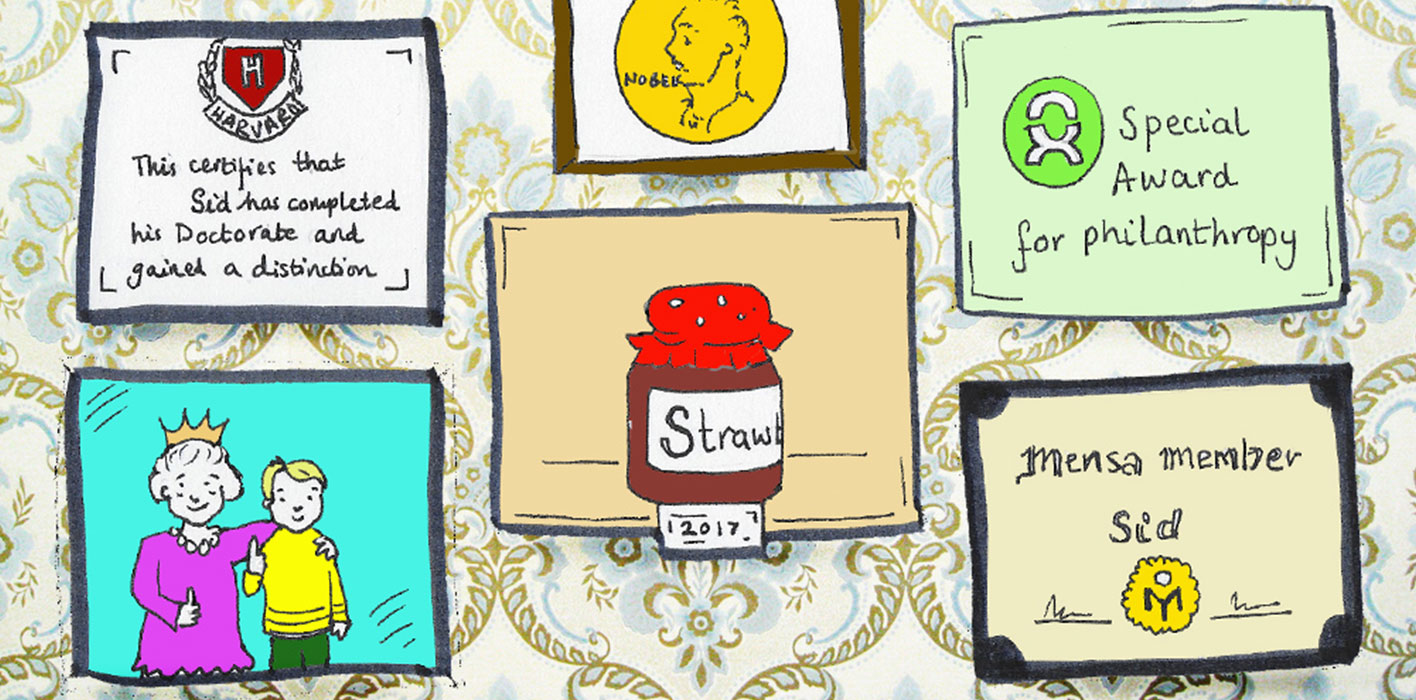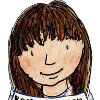My son has just turned 3. He is a self-styled 'big boy' (despite being on the 0.2nd centile for height.) Even though he's not my first child he is still a constant source of surprise and amazement. It's no wonder he doesn't sleep he's far too busy accumulating and assimilating new stuff: knowledge, skills, bogeys, more knowledge.
A while ago, on a supermarket trip, he suddenly pointed at a shelf of jam and shouted (with the enthusiasm I would reserve for a lottery win) "Mama, that's MY letter!!!"
He'd spotted the S on the strawberry jam. My heart leapt. All my suspicions were confirmed. Our son was a genius and we could all give up our jobs and let the revenue from the child prodigy work flood in. I should clarify that his name does actually start with S. What should my next step be? Get on to MENSA? Put in the Yale kindergarten application now? Well no, I had to pay for the shopping.
So after boasting to the people in the queue and the cashier about the rocket scientist in the Paw Patrol socks they had before them, we made our way home, to plan his next steps to greatness.

It really does feel like this. When your small person makes a little cognitive leap, your mind races ahead considering all the things you can do to support further progress.
There are countless websites and books devoted to helping your child get ahead. Pinterest is covered in alphabet activities for the under 5s. It is tempting to dive on in.
However, for me, this is where 15 years of Primary teaching kicks in. Woah there, Nelly. I know you want to whip out a worksheet full of S's, a 'fun' learn the alphabet app or Baby Einstein DVD. But pause. How did he get to this point in the first place? Have you been showing him flash cards since before the cord was cut? No, you have not. You have been reading with him, writing his name in the sand on the beach, linking the sounds he hears to the letters before him. I think we always feel like doing something is the way to help our children make progress, but actually sometimes, just being is enough.
Did you explicitly teach your child the word door or stairs or cup? Probably not. Do they know those words? Yep. Through living. Through being. The absolute best things you can do to support your child to become a reader is... read! To them, with them, to yourself and let them see you read for pleasure and for a purpose. You might point out that you're reading a recipe to know how to make a cake, or a shopping list to remind you what to buy. You don't need to do special extras at this stage. In fact, getting your active, bouncy toddler to sit and focus on a 'game' that you have instigated is unlikely to engage them for long and may, if pushed, put them off. If you’re really desperate to 'do something' then research suggests developing your child's vocabulary could have a marked effect on their achievement.
Talk and read. Gotcha.
My plan then is to keep it light, relevant and fun. Share stories every day and let him lead. And telling everyone I meet that my child is a solid gold genius.






